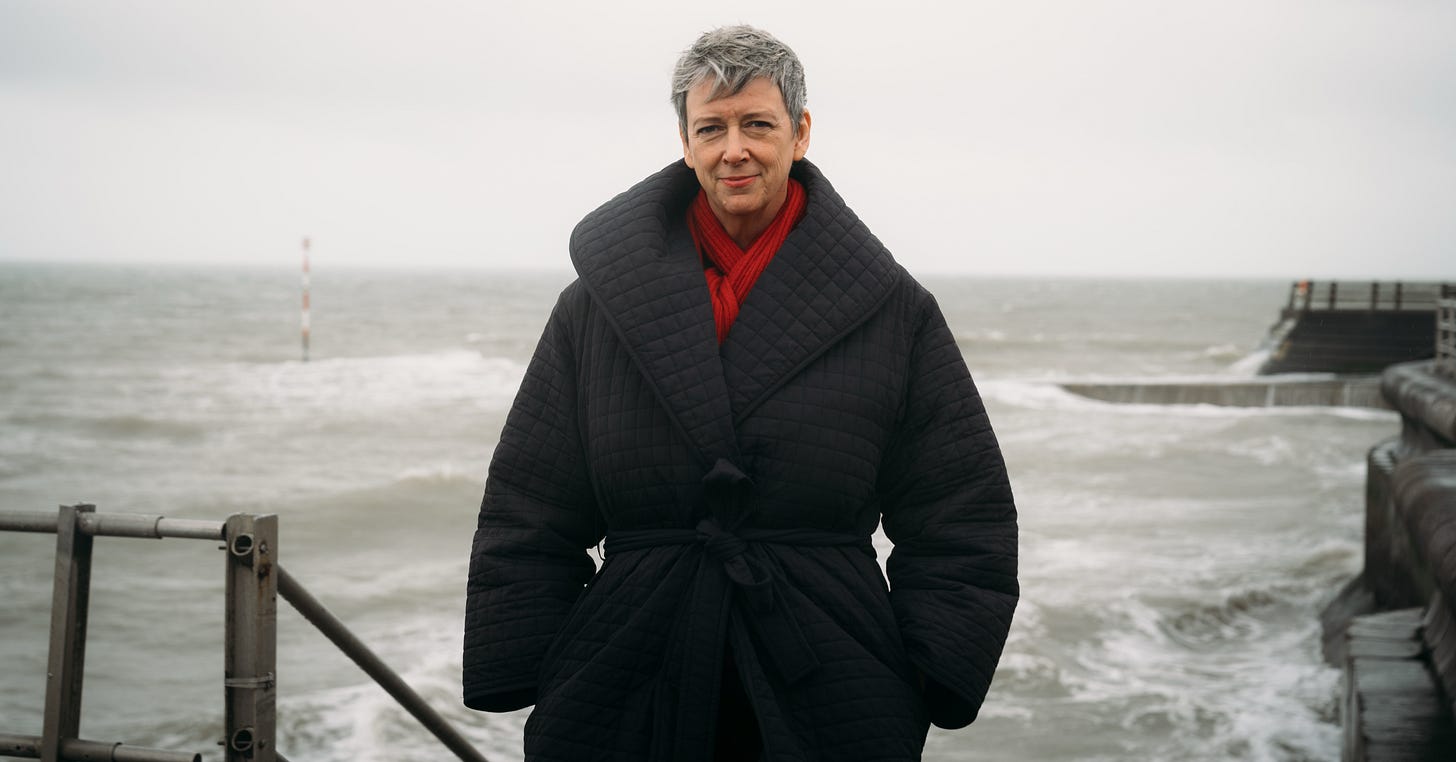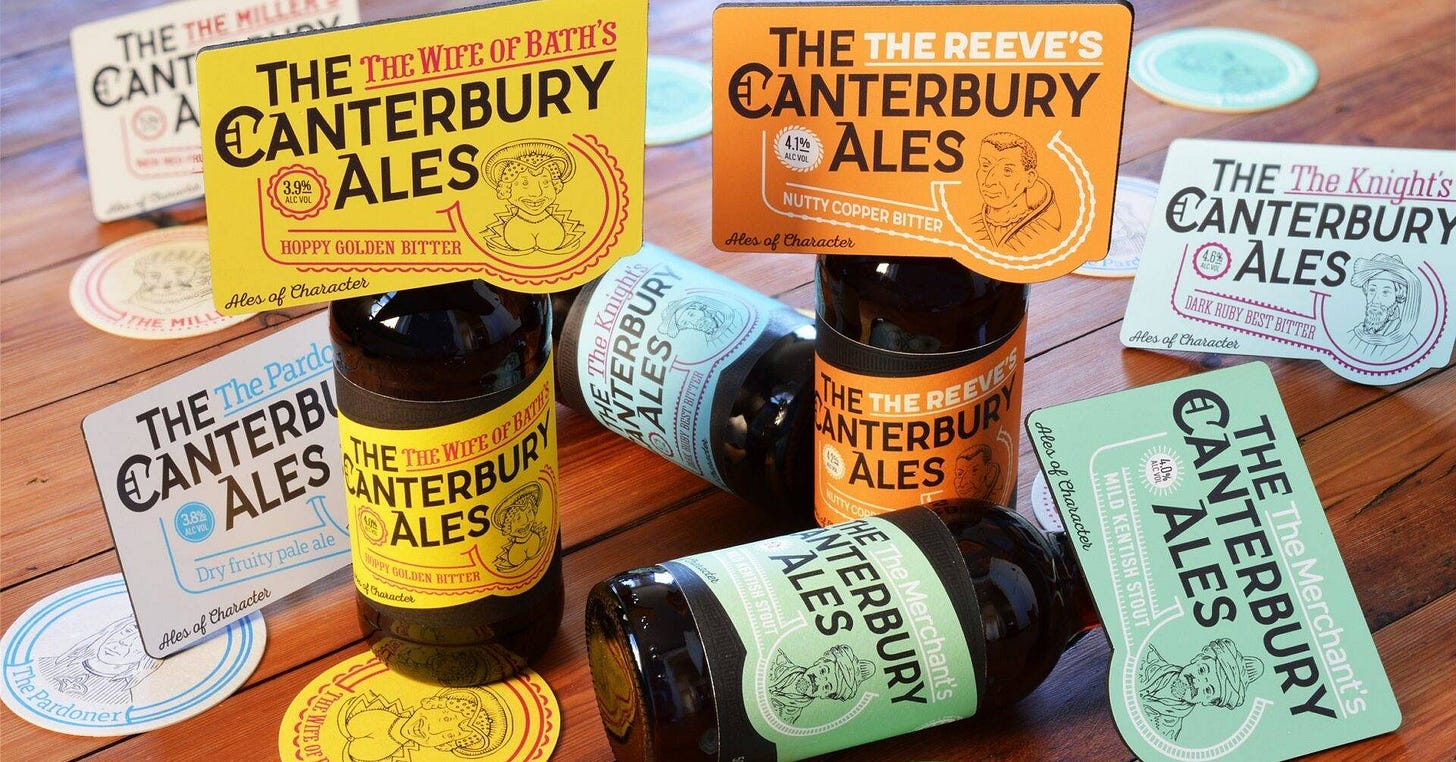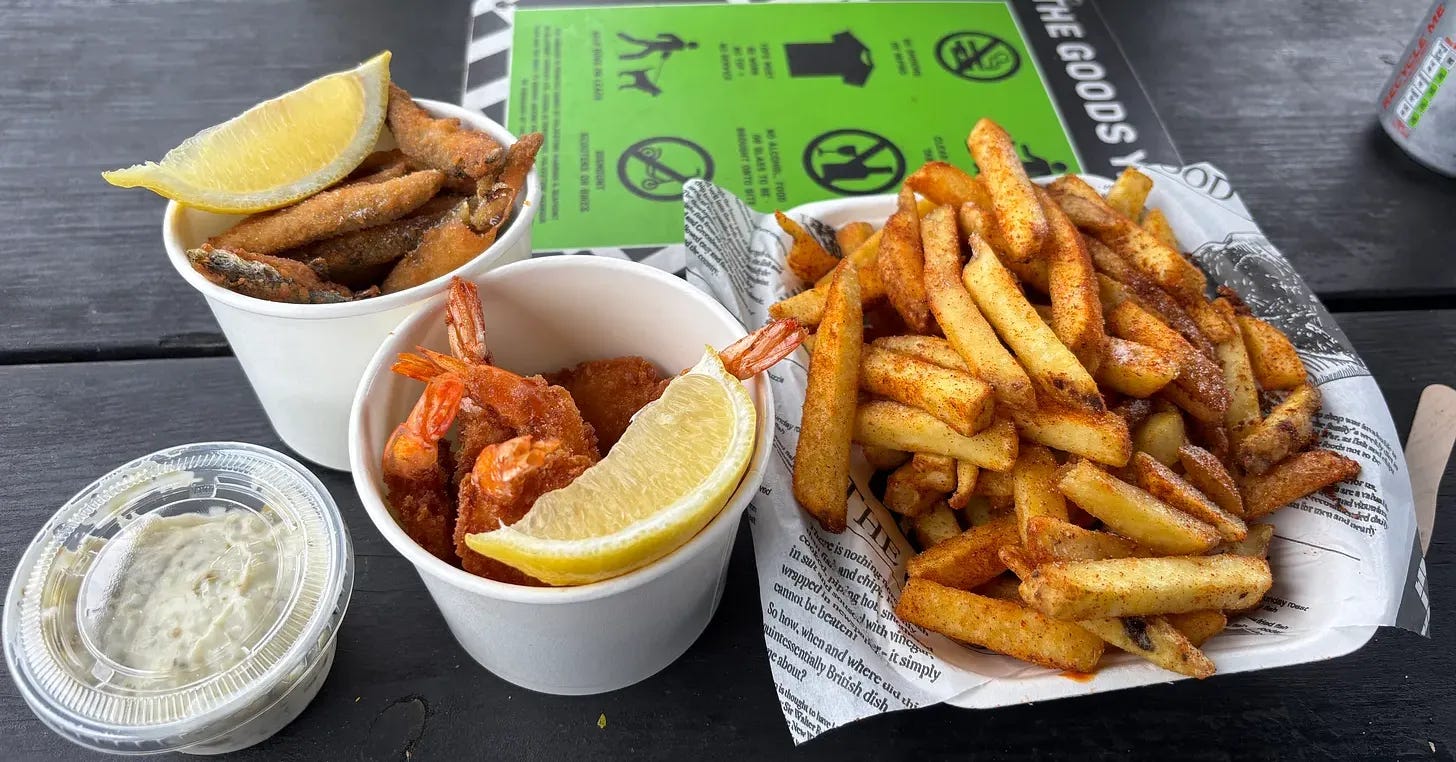East Thanet MP reiterates push toward clean energy
Plus award-winning Canterbury ales, new Filaments exhibition in Medway, Folkestone fish and chips, upcoming Kent events, and more
Climate change has become an increasingly fraught political issue in recent years, but one Kent MP is eager to stress how important it is to stop the damage from going too far. Further down, we speak to the team behind the award-winning Canterbury Ales microbrewery, meet a collective of mixed-media artists, consume fish and chips, look at the most interesting events around the county, and more.
East Thanet MP reiterates push toward clean energy
Polly Billington is the Labour MP for East Thanet with a keen interest in environmentalism. With some political and media voices calling for an end to net zero targets, we caught up with her to discuss whether or not this was a good idea…
Polly Billington has been a lifelong campaigner and environmentalist with a clear focus on climate change. “Increasingly, the language has been around net zero,” Polly tells me, “which felt to me like when we were first talking about it, saying we are going to have to get to zero emissions”. This is in order, Polly explains, to be able to tackle climate change and reduce the risks of runaway climate change, “which would be catastrophic for everybody, not just for nature, but also for our economy.”
Net zero has become part of the language in the culture war, epitomising something that people have decided they're against or for. “The basics of this is that we've got a situation where we're putting dangerous chemicals into the atmosphere and have been since the industrial revolution,” says Polly. This has significantly impacted the climate in ways that began barely noticeable with things “like insects, and before you know it, you've got excessive floods and extreme heat.”
This has direct impacts on the economy, “particularly on the people who are the poorest, people who can't afford insurance,” who then end up stuck when there are floods or unable to deal with overheating in the summer. “It's much harder to keep your homes both dry and cool, as well as comfy.” Meanwhile, big companies are spending a lot of money on making their own assets much more resilient and investing in avoiding climate change “because they've done the risk assessments. They can see what the consequences are for their financial prospects.”
The environment is fundamental to the health and wellbeing of all human beings. Some people have more access to it than others “if you only preserve it for the wealthy.” The focus is on changing “our economy quite considerably. We could do it in big clunky ways that can be terrible on communities.” Polly wants the focus to be a way that allows people to get a better job and have a better life than they have now. “If we do this properly, it can be better than it was before and head off climate catastrophe, which could be economically devastating for everybody, particularly the poorest.”
If average temperatures continue to rise, Polly is very clear that “fundamentally, we've got a big scientific problem. We've got a big responsibility. We can sort this out and make things better if we do it right. I can't really see what the downside is to be doing this properly.” A common response is to ask what the point is when countries like China and India are large carbon emitters. Polly doesn’t agree. “That is the council of despair that nothing can be done.” Polly has worked on climate change internationally, noting that “some of those fast-growing developing countries are swerving around dependence on fossil fuels because different technologies are developing instead.” She cites equatorial countries that have got guaranteed hours of sunshine every day all year round. “That is a pretty reliable form of energy.”
Responding on China in particular, Polly highlights that “we're importing solar technology from the Chinese because they've been refining it for 15 years. They're really good at it.” Rather than be distracted, Polly wants there to be a focus on making sure that we get the right supply chains “to be able to make the kit ourselves here, creating decent jobs and that we're not buying equipment that's been made by slave labour.”
Polly highlights that she is not a scientist and “I'm not expecting everybody to be a climate scientist, but I do respect people who know what they're talking about.” The scientific consensus says that climate change is caused by human activity, “particularly the use of fossil fuels, which has created a massive buildup of carbon dioxide in the atmosphere, which is creating a warming planet and having desperately adverse effects on our climate, weather patterns and the natural balance of things.” Polly is adamant this is not just correlation but clear causation.
Polly would leave fossil fuels in the ground “because getting it out is having such desperately adverse consequences for everybody. We need to find new sources of energy and renewables in particular, as well as nuclear.” She notes that powering the economy is an important part of her government’s growth agenda. “We've built our economy on this intensive energy use.”
Polly’s mother grew up in a colliery village, and her grandmother was delighted that she had two girls because “that meant that she wasn't going to have a child going down the pit”. The pit could be a dangerous place: Those who didn’t die or had a serious accident often ended with serious conditions like COPD. “I just think if you've got ways of being able to power your communities, which is using the gentle and valuable resources of the sun and the wind, as well as our proven technologies such as nuclear, we should be using those rather than going down the path of fracking,” an extracting practice which is dirty, polluting, and dangerous.
We inevitably talk about whether there is any aspect that gives Polly hope for the future. It is easy to be gloomy with the data shows the climate is still warming. “What I do know is the ingenuity of humanity can be harnessed when we agree to do amazing and extraordinary things.” She highlights parts of nature being effectively restored and work done to agree on the basic fundamental principles of how we should conduct ourselves as a nation. “We don't always do it, but that's because human nature is not only amazing and ingenious and great, but it's also frail. You've got to keep on going on and be eternally vigilant and be eternally optimistic.”
For Polly, the difference between optimists and pessimists “are that optimists know it could be worse.” Polly highlights the enormous work completed over the past few decades in terms of decarbonising our economy here. “That does mean that we need to make sure that we support other places in decarbonising their economies and reap the economic benefits of that development here.”
Award-winning and Kentish Canterbury Ales
Canterbury Ales is an award-winning microbrewery producing eight beers based on the characters in Chaucer’s Canterbury Tales. We caught up with owners Vanessa Kent and Martin Guy to talk about what got Martin brewing…
Canterbury Ales is a traditional microbrewery producing real ales with modern ingredients. They produce a full range of traditional British ales, everything from a pale ale to a stout. “Wherever possible, we use the best ingredients, whether they come from local farms or from anywhere around the world,” says Martin. They started brewing 15 years ago and went commercial in January 2011.
They originally lived in London before moving to Kent to live near Vanessa’s family. Martin was looking to set up a brewery and found that he could afford premises, something that wasn’t an option in London. As well as being affordable, they found ideal premises with great transport links and a good cluster of “nice country pubs and good quality farm shops that we can deal with,” says Vanessa.
They split the work based on skillset and interests, with Martin focusing on recipe formulation, logistics, and managing the brewery, or as he describes it, “anything to do with the beer side.” Vanessa works part-time and covers the sales side of things and “supposedly the marketing,” Vanessa says, suggesting the social media could be better.
Martin started off as a homebrewer “back in the 1980s because there was no decent beer out in the world.” Martin and his mates would have competitions to see who could brew something that was “vaguely drinkable.” Martin was also into historical reenactment and started reenacting the Tudor period at Kentwell Hall in Suffolk, where he became the master brewer. “I was brewing ales on an open fire, in open vessels.” It was a good way for Martin to learn how things worked, both with homebrewing and historical brewing. He added to this by completing courses on commercial brewing.
They have gone on to win awards, the most recent was being placed by CAMRA in the southeast region for champion beer of Britain. They also received a bronze for their Miller's Ale. The Society of Independent Brewers declared their Merchant’s Ale the best beer in southeast England, “which is not bad for a 4 % stamp.” They have even won an award for their beer mat collection. “We were very proud of that one.” Sand Creative designed the beer mats around the theme of the beers being based on characters from the Canterbury Tales. Each beer mat featured the face of the character with the name of the beer and then their branding on the other side.
Whilst Martin was continuing to develop the beer, “making sure that it suited the local taste and that people would enjoy drinking it,” Vanessa was focused on getting the name out there, with the toughest challenge being finding pubs that would take the beer. “At the time, a lot of the pubs around here were just stuck with the usual brands,” says Vanessa. “There was a handful of microbreweries. It was quite newish, there was six or seven in Kent. Now there’s over fifty.” Part of what made their project achievable was a tax break brought in during the early 2000s for microbreweries, which enabled them to compete with the larger breweries. “They've got economies of scale. We get a little tax break,” says Vanessa, with Martin adding that “the fact that taste has changed and there's access to really good ingredients now.”
Martin’s advice for somebody considering setting up their own micro-brewery is to “do your research first.” He highlights that it has become very competitive. “It's a tough market,” he notes. He advises fully testing your beers first to “make sure that there's something that people are going to like. Consistency is key. Make sure that your customers are always going to get a good quality beer. It's very easy to brew bland beer, but nobody wants to drink it. Anyone can brew beer, it's actually a very simple process, but brewing the same beer time after time is the goal.”
Filaments art collective to reveal new exhibition
Filaments is a mixed-media art collective. We spoke with Ruth and Rosie from the group about their upcoming show at the Halpern Gallery in Chatham as part of Medway Open Studios…
Filaments is comprised of Elizabeth Burman, who paints collages and stitches, Karen Crosby, who uses cameraless photography, Rosie James, a textile artist who draws with a sewing machine, Ruth Payne, who is multidisciplinary, and Linda Simon, who uses pattern making data in her textiles. They should also not be mistaken for the punk band Filaments, though Ruth wouldn’t object if they were.
Most of the group are from the surrounding area of Maidstone and would repeatedly meet at art events. They decided to work together when an art exhibition opportunity appeared at St Mary’s church in Burham. They decided to do the exhibition during nighttime in Winter. The called the event ‘Filaments.’ Hosted over two nights, it was a mixture of light and thread. They enjoyed the experience, worked well together, and the show was so popular that they were immediately asked to host another exhibition. Since then, they have continued to meet, bounce off ideas, have a laugh and develop projects for exhibitions. They continue to work on individual work and collaborate on group pieces.
At last year’s Medway Open Studios, they didn’t have a venue, so they took their art onto the streets with ‘Off Her Trolley’. This involved them all dressed up as tea ladies with a variety of old-fashioned trolleys, walking from Rochester High Street to Sun Pier House.
They were invited to exhibit at the Halpern by the gallery manager Genevieve Tullberg, who had seen their Burham exhibits and their work on the LV21 lightship. As part of Medway Open Studios, they are presenting a two-week exhibition at the Halpern Gallery, ‘All for One and One for All’. The first week, they are doing a curated show of their individual works that work together as a whole because they enjoy working well together and will include new work and pieces that have not been shown for some time. The second week will be something different, as the collective will rehang halfway through, providing another immersive installation which is more of a collaboration. They then button up so as not to reveal more at this time other than to say that the exhibition will respond to the physical properties of the gallery. In the first week, there will be pieces to purchase as well as some purely for the exhibition itself. However, if somebody wants to make a large offer, they are open to discussions…
The Filaments Art Collective exhibition at the Halpern Gallery in Chatham will run 3 - 16 July, and is free to visit.
Out to Lunch: Folkestone’s Fish Shack
On Folkestone’s impressively revitalised harbour pier, which is worth a visit in its own right, is a food court called The Good’s Yard. It offers a big screen, street food, and a partially covered seating area. Nepalese Street food is on offer, alongside smash burgers, pizzas, and loaded baked potatoes. Having walked this far, with a strong wind blowing in the sea air, it seemed only appropriate to have fish and chips.
The Fish Shack had a pleasingly restrained menu, with the main offering of cod and chips. Being a fan of small plates, I ordered a pot of whitebait, a pot of butterfly prawns, and a portion of skin on fries, with a pot of tartar sauce and a Diet Coke. You are given a pager whilst they reassuringly cook your food fresh. Less reassuring is the noise the unrelenting pager makes when your food is ready. Once you receive your food, a name game begins: How much will a nearby seagull terrorise you for your food, and how brave will you be should this modern dinosaur come for your food?
The whitebait was well cooked, tasty, and, if anything, overly generous with its portion size. Apparently, there is such a thing as too much whitebait. The crispy fries were a delight, with a Cajun seasoning. The butterfly prawns were immense, the Fish Shack worth visiting for those alone. I enjoyed sitting in the strong wind, eating my prawns, and watching the seagull steal somebody else’s cod goujon…
Kent events
🏳️🌈 Sat 7 Jun - Pride Canterbury // City centre celebration of LGBT+ community with parade, stalls, entertainment, and food. Westgate Gardens, Canterbury. Free.
👨🏻🚀 Sun 8 Jun - Chris Hadfield: A Journey Into The Cosmos // Astronaut shares stories about his trips to space and explore the universe. Marlowe Theatre, Canterbury. Tickets from £44.
🎸 Thu 12 Jun - Gruff Rhys // Former Super Furry Animals frontman plays solo show. Forum, Tunbridge Wells. Tickets £27.50.
🎤 Sat 14 Jun - Matt Forde // Political comedian sets his sights on a new government of targets. The Alex, Faversham. Tickets £22.50.
🎸 Thu 19 Jun - Arxx // Loud and fast powerpop duo. Ramsgate Music Hall. Tickets £16.50.
Footnotes
Follow us on social media! We’re on Facebook and BlueSky for now.
If you enjoy Local Authority, please share it with your friends, family, associates, and enemies. We have no meaningful marketing budget, so we rely on word of mouth from our readers to find new readers.





